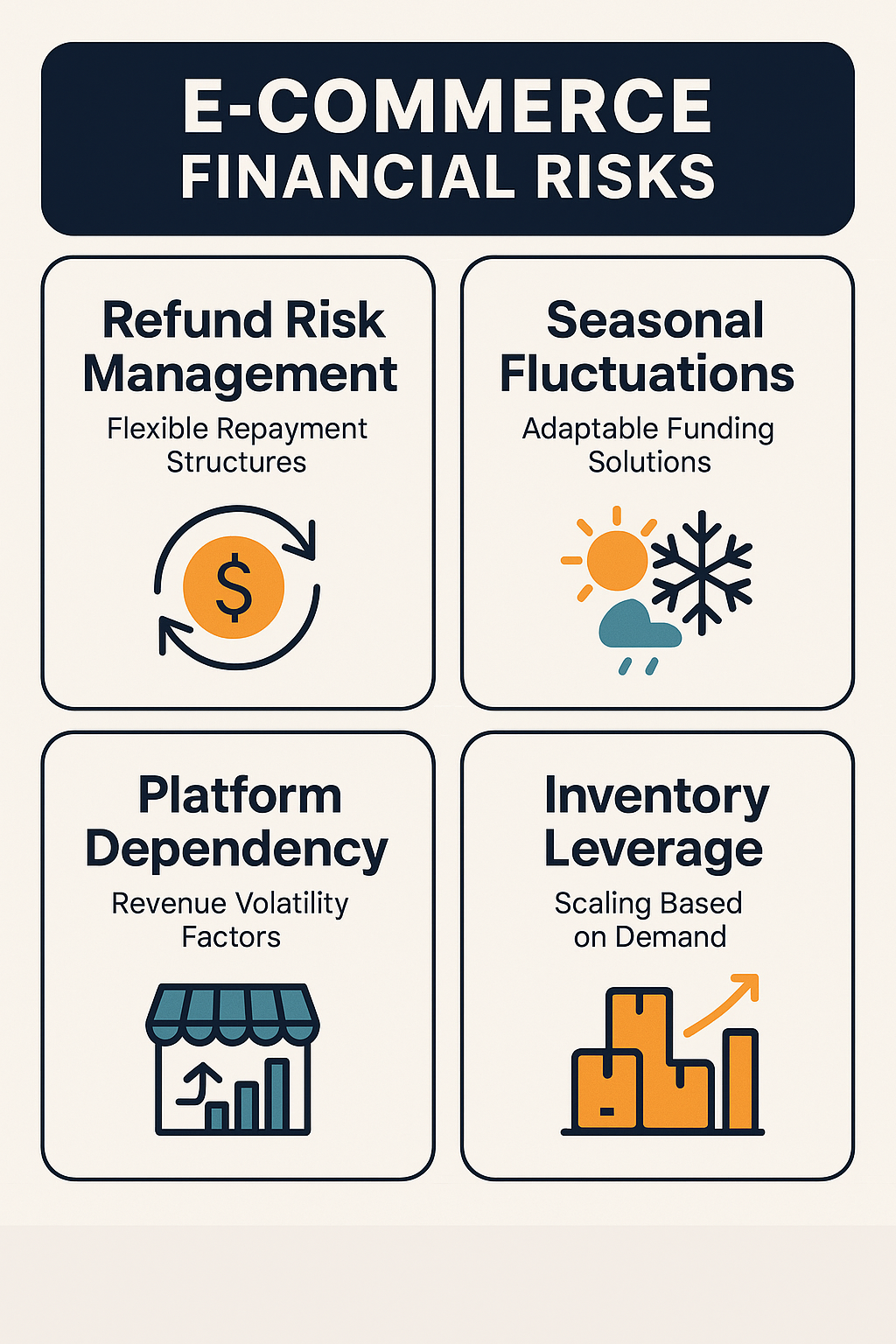Running an e-commerce business requires different financial strategies than traditional brick-and-mortar operations. Online retailers face unique challenges like inventory management, seasonal sales fluctuations, and the need for rapid scaling across multiple platforms. Finding the right funding for e-commerce businesses can make the difference between struggling to keep up with demand and achieving sustainable growth.
Why E-Commerce Businesses Need Specialized Funding
E-commerce businesses operate differently from traditional companies, and their funding needs reflect these unique operational demands. Online retailers typically experience rapid fluctuations in online sales revenue, requiring quick access to capital for inventory restocking and seasonal preparation.
Traditional lenders often struggle to understand the digital nature of e-commerce operations. They may not recognize how multi-channel sales platforms generate revenue or how to properly assess the value of digital assets and inventory. This disconnect has led to the development of specialized financial products designed specifically for online businesses.
The need for fast scaling presents another challenge. E-commerce companies might experience sudden growth spurts that require immediate inventory investment or technology upgrades. Standard business loans with lengthy approval processes may not provide the timing flexibility these businesses need to capitalize on market opportunities.
Key Funding Options for Online Retailers
Several specialized funding solutions have emerged to address the unique needs of e-commerce businesses. These options typically offer more flexibility and faster approval times than traditional bank loans.
- Inventory financing: Provides capital specifically for purchasing stock, allowing businesses to maintain adequate inventory levels without depleting cash flow
- Revenue-based financing: Offers funding based on historical sales performance, with repayments tied to future revenue streams
- Merchant cash advances: Delivers quick access to capital based on credit card processing history, ideal for businesses with consistent transaction volumes
- Equipment financing: Covers technology upgrades, warehouse equipment, and other essential infrastructure investments
Managing E-Commerce Financial Risks

Online businesses face specific financial risks that traditional companies may not encounter. Understanding these challenges helps in selecting appropriate funding solutions and structuring repayment terms.
- Refund risk management: High return rates can impact cash flow, making flexible repayment structures important for maintaining stability
- Seasonal fluctuations: Many e-commerce businesses experience significant seasonal variations that require funding solutions adaptable to changing revenue patterns
- Platform dependency: Reliance on third-party marketplaces can create revenue volatility that needs to be factored into funding decisions
- Inventory leverage: Balancing stock levels with available capital requires funding options that can scale up or down based on market demand
Securing appropriate funding for e-commerce businesses requires understanding the unique dynamics of online retail. From inventory management to multi-channel sales optimization, the right financial partner can provide the flexibility and speed that digital businesses need to thrive. Consider your specific operational needs, growth timeline, and risk tolerance when evaluating funding options that align with your e-commerce goals.

.png)






